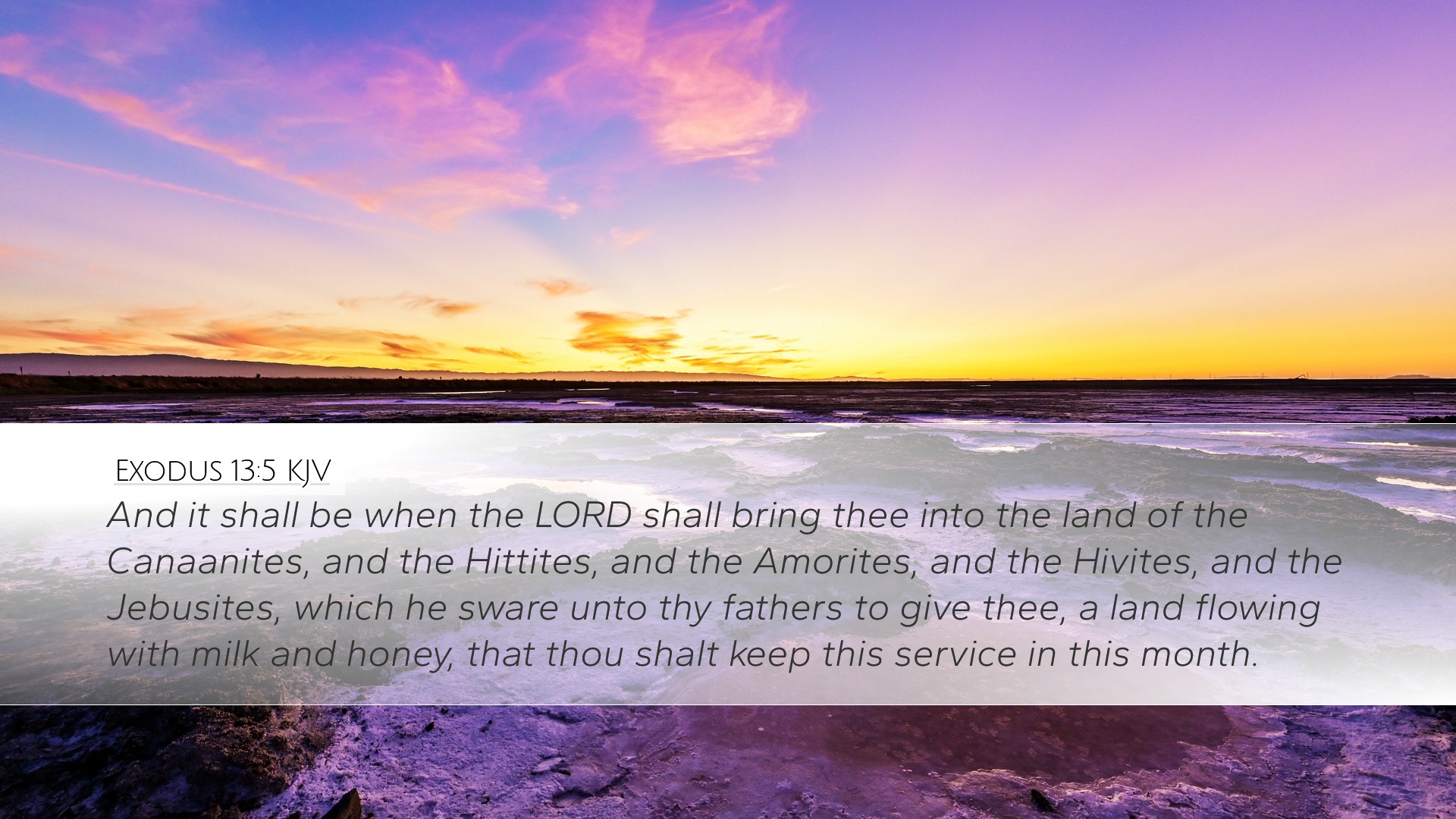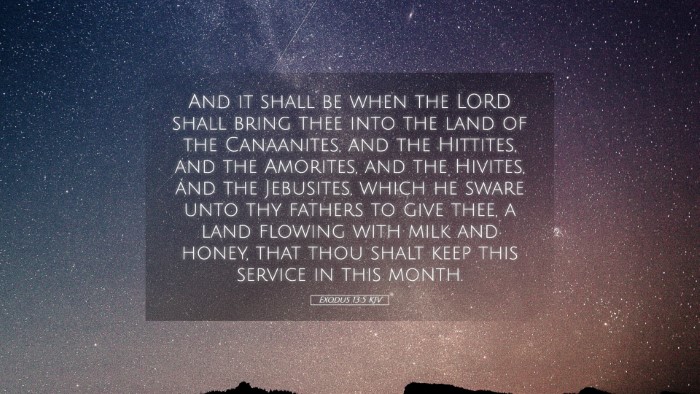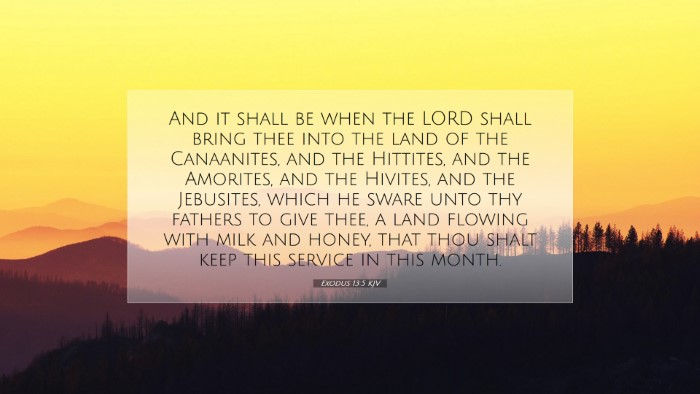Commentary on Exodus 13:5
Verse: "And it shall be when the Lord shall bring thee into the land of the Canaanites, and the Hivites, and the Amorites, and the Hivites, and the Jebusites, which he sware unto thy fathers to give thee, a land flowing with milk and honey, that thou shalt keep this service in this month."
Introduction
Exodus 13:5 encapsulates the promise and the preparation as the Israelites transition from slavery in Egypt to the freedom of the Promised Land. In this analysis, we draw on traditional perspectives from public domain commentaries, which explore the theological implications, historical context, and practical applications of this significant verse.
Theological Implications
This verse speaks to the faithfulness of God in fulfilling His covenant. The mention of the various nations (Canaanites, Hivites, Amorites, Jebusites) signifies the challenges that lie ahead as Israel prepares to claim the land God swore to their forefathers. As noted by Matthew Henry, this passage not only anticipates the physical entrance into Canaan but also symbolizes the spiritual journey of believers who seek to enter into the fullness of God's promises.
The Nature of the Land
The phrase "a land flowing with milk and honey" reflects the abundant provisions of God. Albert Barnes emphasizes that this description symbolizes prosperity and fertility, serving as a stark contrast to the oppression and scarcity experienced in Egypt. This promise of abundance is central in God’s covenant with Israel, reinforcing their identity as His chosen people.
Historical Context
Understanding Exodus 13:5 requires an awareness of the historical backdrop. The Israelites had been enslaved for generations, and the promise of land was central to their identity and future. Adam Clarke elaborates on the significance of this transition not just as a geographical move but as a crucial step in God’s redemptive plan amidst His chosen people, marking the establishment of a national identity under divine guidance.
Spiritual Application
This verse holds profound implications for modern believers. Matthew Henry points out that just as the Israelites were called to remember their deliverance and the covenant promises, so too are Christians reminded to acknowledge God’s faithfulness in their lives. The act of remembering and honoring God’s provisions fosters a relational depth with Him and encourages faithfulness in worship.
- Reflection on Deliverance: Believers are called to reflect on their own journeys of deliverance and redemption.
- Commemoration of Blessings: The significance of keeping this service in the month highlights the importance of commemorating God’s blessings in our lives.
- Living in Promise: Just as the Israelites were to enter Canaan, Christians are called to live fully in the promise of eternal life and abundant spiritual blessing.
Covenantal Significance
In the context of covenantal theology, Exodus 13:5 serves as a reminder of God's unchanging nature. Albert Barnes discusses how the covenant with Abraham, Isaac, and Jacob is central to understanding Israel's purpose. The promise of the land reinforces their special status as a nation chosen by God, reminding today’s readers of their own calling and covenant under the New Covenant established through Christ.
Conclusion
Exodus 13:5 invites readers to explore the depths of God's promises throughout history. By drawing insights from the commentaries of Matthew Henry, Albert Barnes, and Adam Clarke, we recognize the relevance of this scripture to contemporary faith journeys. The call to remembrance, acknowledgment of God's blessings, and the anticipation of abundant life are central themes that resonate through the ages. As ministers, scholars, or devoted followers of Christ, may this verse inspire continued growth in faith and action, reflecting God’s enduring promises.


